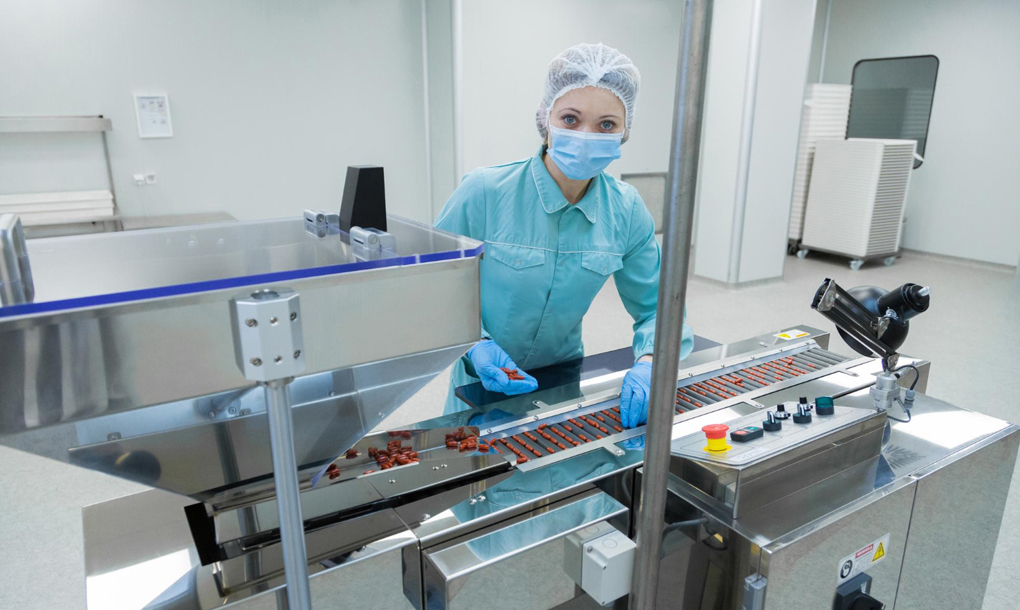
02 Oct
In recent years, freeze-drying technology has revolutionized the pharmaceutical industry, dramatically altering the landscape of drug manufacturing, storage, and distribution. This innovative process, also known as lyophilization, has become an indispensable tool in the pharmaceutical supply chain, offering numerous benefits that have improved drug efficacy, stability, and accessibility. In this blog, we'll explore how freeze dryers have transformed the pharmaceutical supply chain and why they've become a cornerstone of modern drug production.
One of the most significant impacts of freeze-drying on the pharmaceutical supply chain is the remarkable improvement in drug stability and shelf life. Traditional liquid formulations of many drugs are prone to degradation, requiring strict temperature control and limiting their usable lifespan. Freeze drying addresses these challenges by removing water from the drug compound while preserving its chemical structure and therapeutic properties.
The process works by freezing the drug solution and then reducing the surrounding pressure to allow the frozen water to sublimate directly from solid to gas. This leaves behind a dry, porous product that can be easily reconstituted when needed. The resulting freeze-dried drugs are incredibly stable, often maintaining their potency for years without refrigeration. This extended shelf life has far-reaching implications for the entire supply chain, from manufacturing to end-user delivery.
The stability of freeze-dried pharmaceuticals has led to a significant transformation in storage and transportation logistics. Unlike their liquid counterparts, lyophilized drugs don't require constant refrigeration, which simplifies the cold chain management process. This reduction in cold chain dependence has several advantages:
These improvements have made it possible for pharmaceutical companies to expand their global reach, bringing life-saving medications to areas previously underserved due to logistical constraints.
Freeze-drying technology has opened up new possibilities in drug formulation, allowing for the development of products that were previously unfeasible. Many biological drugs, such as vaccines, proteins, and antibodies, are inherently unstable in liquid form. Freeze drying provides a means to preserve these complex molecules in a dry state, maintaining their structural integrity and bioactivity.
This capability has accelerated the growth of the biologics market, which includes some of the most innovative and effective treatments for various diseases. By enabling the production of stable, dry formulations of these sensitive compounds, freeze dryers have played a crucial role in bringing cutting-edge therapies from the laboratory to patients worldwide.
The impact of freeze-drying extends beyond the supply chain to the point of care. Lyophilized drugs offer several advantages in terms of administration:
These benefits have led to improved patient outcomes and increased adherence to treatment regimens, further underscoring the value of freeze-drying technology in the pharmaceutical industry.
The adoption of freeze-drying has also driven advancements in pharmaceutical manufacturing processes. Modern freeze dryers are equipped with sophisticated control systems that ensure precise process parameters, leading to consistent product quality. This level of control has facilitated:
These manufacturing advancements have contributed to more efficient drug production, reduced time-to-market for new products, and improved overall quality assurance.
Freeze dryers have undeniably transformed the pharmaceutical supply chain, offering solutions to long-standing challenges in drug stability, distribution, and administration. From extending product shelf life and simplifying logistics to enabling new drug formulations and improving patient care, the impact of this technology has been far-reaching and profound.
The integration of freeze dryers into pharmaceutical manufacturing and distribution processes stands as a testament to the power of innovation in addressing complex challenges in healthcare. As we look to the future, it's clear that freeze-drying will continue to play a pivotal role in shaping the landscape of global pharmaceutical supply chains.